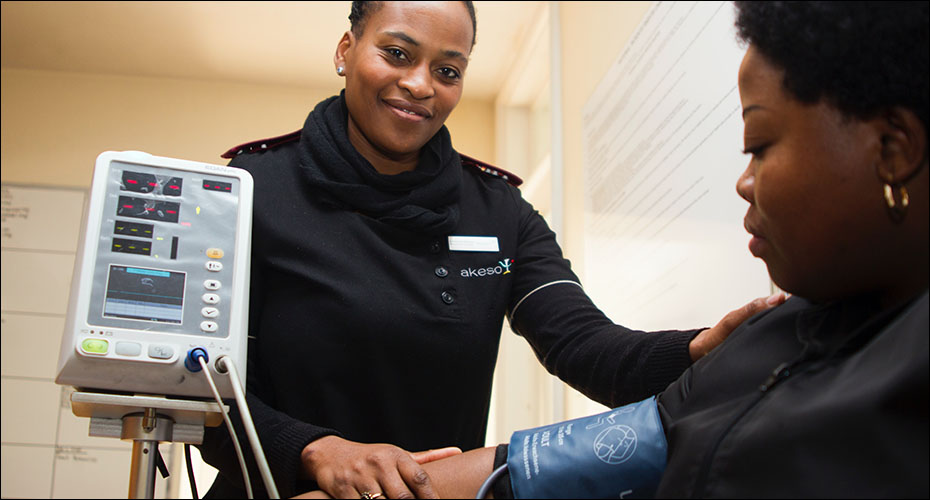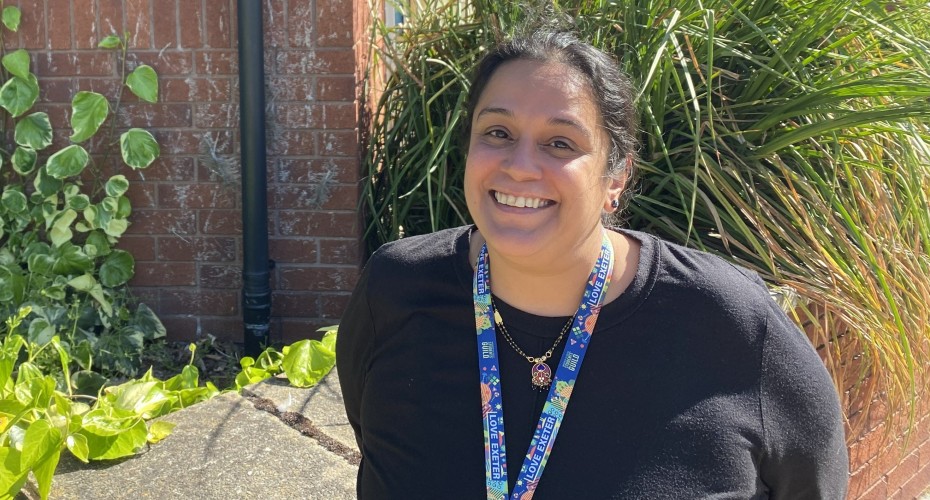Undergraduate
Clinical and Biomedical Sciences is an internationally recognised centre of excellence for biomedical and clinical research and teaching. You will be taught by world-leading experts, and our innovative undergraduate education programmes, are training you as the next generation of clinicians and biomedical scientists to tackle the healthcare and scientific challenges of the future.
Laura joined University of Exeter in 2025 as Associate Dean for Medical Education in the University of Exeter Medical School.
Prior to this, she was Head of Education in the School of Medical Sciences, University of Birmingham and previously held senior programme leadership roles at the Universities of York (Hull York Medical School) and Leicester (Leicester Medical School). She has considerable experience of curriculum review and development, and her interests lie in ensuring that inclusive support for learning for all students is central to curriculum design and management.
Read more from Professor Laura Mongan
Professor Laura Mongan
Dean for Medical Education
Based on the St Luke’s campus, I’ve been fortunate to be a part of our learning community of talented educators and students for over 10 years.
I joined the Medical School in November 2011 and, after acting as programme lead for Sport and Exercise Medical Sciences from 2016 and Deputy Director for Medical Sciences programmes from 2019, I became the DESE for undergraduate Biomedical Sciences programmes in January 2023.
As a member of the Senior Leadership Team for Clinical and Biomedical Sciences, I am responsible for the management, development and implementation of strategic plans for the education and student experience of students on the Biomedical Sciences, Neuroscience and Sport and Exercise Medical Sciences undergraduate degree programmes.
Read more from Professor Clare Gallon
Professor Clare Gallon
Director of Education and Student Experience (Biomedical Sciences)
Undergraduate programmes

.jpg)

.jpg)
Programme Directors
BSc Neuroscience

Dr Tom Ridler - Programme Director
Tom Ridler is a Senior Lecturer in Neuroscience and programme director for the BSc Neuroscience course. His background is in neurophysiology, and he is interested in how neurological diseases such as Alzheimer’s disease and epilepsy produce changes to neuronal networks that ultimately affect cognitive processes.
Tom moved to Exeter as a PhD student in 2013, after which he took up a role as a postdoctoral researcher in the Exeter applied Neurophysiology group. Tom is an education-focused lecturer who primarily teaches on the BSc Neuroscience and MSc Neuroscience courses. He is a fellow of the HEA, with experience teaching on a wide array of modules across all academic years.
Email: T.Ridler@exeter.ac.uk
BSc Biomedical Sciences

Dr Shelly (Yuktee) Dogra - Programme Director
Shelly joined the University of Exeter in 2017 where she taught across various programmes. In 2023 she became Program Director for Medical Sciences. Shelly is a fellow of the HEA, undertaking her pedagogical research into academic tutoring, an area she is particular interested in.
Shelly undertook her PhD at Peninsula Medical School with Prof Paul Winyard and Prof Alice Curnow, focusing on the enhancing the effectiveness of photodynamic therapy for the treatment of non-melenoma skin cancer. Her postdoctoral research investigated the environmental effects of nanoparticles.
Email: y.dogra@exeter.ac.uk
Studying BSc Biomedical Sciences at Exeter
The Biomedical Sciences degree prioritises the science that underpins medicine and clinical practice, preparing students to translate scientific discoveries and technological advances into improved healthcare. The degree gives the students an understanding of human health and the causes, prevention, and treatment of disease. With this degree students can tailor the qualification to match their specific career ambitions.
Our Biomedical Sciences degree offers an innovative approach to learning that includes lectures from world-leading experts; supportive small-group learning; internationally renowned e-learning resources; hands-on sessions in research laboratories and clinical settings; inspirational clinician-scientist-patient sessions; and worldwide professional training placements. The practical component of the degree is an inspirational environment to build on a future research career.
The students will develop an integrated, scientific knowledge that they can utilise in a clinical setting and robust research skills, plus creative and inquisitive communication, leadership, critical appraisal, and problem-solving skills applicable to all careers.
BMBS Medicine

Professor Alison Curnow, BSc (Hons), PhD, PGCE, PFHEA, FAcadMEd
University of Exeter Medical School
Director of Medicine (Academic), Professor of Academic Medicine and Principal Investigator, Clinical Photobiology, with twenty five years’ experience of conducting oncological related research.
Extensively involved in the strategic leadership and management of the development, delivery and assessment of the Medical Schools’ undergraduate and postgraduate programmes (2003 to date). Co-leader of our Undergraduate Medicine BMBS programme since 2016. An experienced educator with a wide range of high quality teaching, assessment and curriculum development skills. Principal Fellow of the Higher Education Academy (PFHEA) and Fellow of the Academy of Medical Educators with a Postgraduate Certificate in Education.
Cornish, life-long learner. Privileged to be helping to educate the next generation of NHS doctors, who continue to inspire on a daily basis.
Email: a.curnow@exeter.ac.uk
Studying BMBS Medicine at Exeter
Our Medicine degree produces capable and confident Foundation doctors who are prepared for their role. Our graduates are equipped with the skills for lifelong learning and continue to develop in their professional careers.
You will learn with, from and about other healthcare professionals to ensure that patients benefit from the best possible care.
BSc Sport and Exercise Medical Sciences
.jpg)
Dr Owen Tomlinson - Programme Director
Owen is a Lecturer within the University of Exeter Medical School, having joined in January 2022. Previously, he was a Research Associate in Sport & Health Science at the University, and has completed a PhD in Clinical Exercise Physiology (Sport & Health Science) in 2018.
His teaching responsibilities are across the Medical School, including Medical Imaging, Medicine and Medical Science. He is academic and pastoral lead for the highly successful Professional Training Year, facilitating undergraduate research and training in research laboratories and private industry across the UK and abroad. He is currently the Programme Director for Sport & Exercise Medical Sciences.
His research interests are predominantly within the role of exercise testing and training in chronic lung disease, in particular cystic fibrosis and interstitial lung disease, using this modality to identify prognostically valuable biomarkers and mechanistic causes of exercise intolerance.
Email: O.W.Tomlinson@exeter.ac.uk



